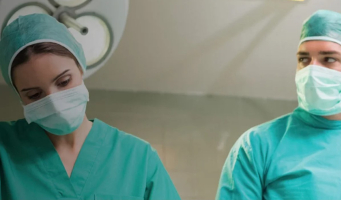Anaesthesia | Recognition of the critically ill patient | Indication for post operative critical care



Indication for Postoperative Critical Care
Session Overview
Description
This session explores the rationale for critical care admission in the postoperative patient, how to identify patients likely to benefit from critical care, and the benefits of admission.
Learning Objectives
By the end of this session you will be able to:
- Assess the most commonly used risk assessment tools and use them appropriately to risk stratify patients perioperatively
- Describe the patient factors that define a patient as 'high risk'
- Identify the general and specific surgical factors that influence admissions to critical care
- Describe the intraoperative events that are associated with an increased morbidity and mortality
- Assess the role of critical care postoperatively in preventing morbidity and mortality following surgery
Prerequisites
Before commencing this session you should:
- Have an understanding of triage and scoring systems (NEWS/APACHE/SOFA) and CCOT
Patients require admission to the ICU postoperatively for many reasons. For some surgical patients it is for treatment, in order to continue resuscitation in an emergency, or to deliver inotropic support. Other patients require close monitoring in order to prevent further deterioration or new complications.
Patients who develop a complication postoperatively do worse than those who do not have any complications. Postoperative complications that are not recognised promptly and treated aggressively increase the risk of significant morbidity and mortality (Fig 1) [1](read details regarding the reference).
- Radiology – Integrated Training Initiative (R-IT...
- Posted By eIntegrity Healthcare e-Learning
- Posted Date: 2025-01-10
- Location:Online
- This session reviews which chambers contribute to the ‘normal cardiac outline’ and examines how specific chamber enlargement or absence alters the normal cardiac shape. It will describe the different diagnoses, which result in characteristic
- Radiology – Integrated Training Initiative (R-IT...
- Posted By eIntegrity Healthcare e-Learning
- Posted Date: 2025-01-10
- Location:Online
- This session provides an overview of the clinical manifestations of haemangiomas, lymphatic and vascular malformations, their radiological work-up plus typical imaging findings.
- Radiology – Integrated Training Initiative (R-IT...
- Posted By eIntegrity Healthcare e-Learning
- Posted Date: 2025-01-10
- Location:Online
- This session covers imaging and diagnosis of paediatric mediastinal masses, and is organised based on their location in the mediastinum.
- Radiology – Integrated Training Initiative (R-IT...
- Posted By eIntegrity Healthcare e-Learning
- Posted Date: 2025-01-10
- Location:Online
- This session discusses radiographic anatomy of the normal mediastinum and its compartments containing different structures and why this is useful when interpreting an abnormal image. The silhouette sign and how it is used to localise a mass on chest radio
- Radiology – Integrated Training Initiative (R-IT...
- Posted By eIntegrity Healthcare e-Learning
- Posted Date: 2025-01-10
- Location:Online
- The session looks at pneumothorax, pneumomediastinum, air leaks in neonates, air leaks in older children and post-traumatic air leaks.


